To provide you with the best experience, cookies are used on this site. Learn more

To provide you with the best experience, cookies are used on this site. Learn more

Beach Combing
Beaches are fascinating places to walk and search for treasure. Whether it’s an ancient fossil, a colourful nugget of beach glass or something washed up from a passing ship there’s always a story to tell.
You will often come across a fossil millions of years old or maybe even a piece of amber! Be sure to have a handy bag to keep your treasure and maybe make up your own story about your finds.

Rock Pooling
Every rockpool is like its own little ecosystem bustling with creatures and habitats. West Runton has the ideal beach for checking this out at low tide. Have a net and bucket of seawater handy to get a close-up look at any finds. Some are really not much different from the creatures living here millions of years ago. Find prawns, tiny crabs and fish but please be gentle and don’t forget to release them back into their pools.
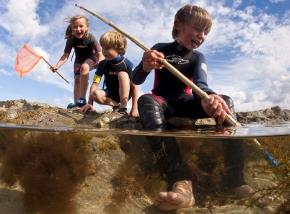
Fossil Hunting
The Deep History Coast is well known for its amazing fossils and there’s plenty to find if you know what you are looking for. You may not find another mammoth but you never know! Easier fossils to find include ammonites, belemnites and even hyaena coprolites (fossilised dung!) Check out our fossil identifier guide to find out more about what you can find. Or take any fossil finds to Cromer Museum or Sheringham Museum for identification.
Please note: As long as you are not in a protected area, you can pick up small fossils that are lying around on the ground. Please do not remove any fossils from rocks or cliffs, and large fossils are best left for all to enjoy. If you are lucky enough to come across a rare find, please report it to a museum and if you're in a Site of Specific Scientific Interest, please follow any rules they might have. They are there to protect geology for future generations.
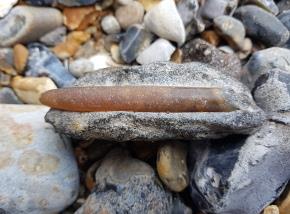
Visit a Museum
Want to find out more about fossils? Cromer Museum’s Geology Gallery has an excellent collection of fossils, all found in Norfolk. There’s also more about the famous West Runton mammoth, plus a cast of the skull of a Mosasaur, a huge marine reptile common in the seas that covered Norfolk over 80 million years ago. Just along the coast is Sheringham Museum, where you can step inside stunning galleries and walk amongst an extraordinary historic fleet of lifeboats and fishing boats. Enjoy seeing a variety of photographs, social history items, agricultural and fishing artefacts and a fascinating geology gallery.
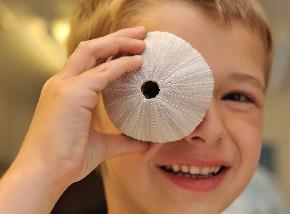
Trek The Discovery Trail
There are eleven Discovery Points along the Deep History Coast Discovery Trail. Along the route, at each Discovery Point, you can find out lots of historical information about the kind of people who lived in the area and the animals they would encounter, plus details of the flora and fauna. Download the Deep History Coast App and each Discovery Point will reveal facts about that part of the route.
Get 'Appy
The Deep History Coast App makes learning about the past extra fun with interactive things to do and see. A Hominin family will become your tour guide as you explore and find out more about their life. Collect virtual mammoth bones at West Runton or Mundesley to complete the mammoth reconstruction task. It’s all good fun and it’s free too
Have a Water Adventure
Taking a dip in the sea is part of every beach holiday, plus you might see some of the marine life which lives off our shores. Stick to the lifeguard patrolled areas of the beaches for safety. More experienced swimmers can snorkel along the chalk reef just off the shores of Cromer and Sheringham.
Create a Piece of Natural Art
If you’ve conquered your traditional sandcastle building skills, try your hand at creating a Deep History Coast landscape. Build cliffs and rivers in the sand, use shells and stones. Alternatively use pebbles and shells to create a mammoth work of art! Don’t forget to take a picture and share on social media using #DeepHistoryCoast.
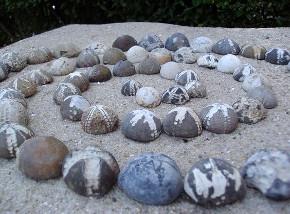
Play Happy Hominins
Imagine what it was like to live in the area thousands of years ago. Let the Hominin family take you on a tour on the Deep History Coast App and play your own game of hapy Hominins. What animals would the family hunt or run away from? Imagine the sea was land and how far it stretched. Build a shelter and hide from predators.
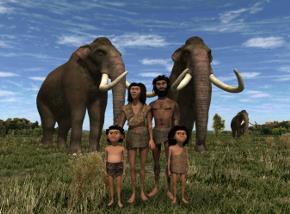
Plan your visit to the Deep History Coast